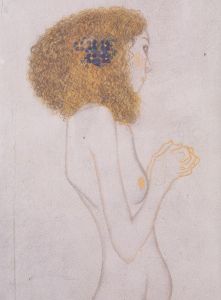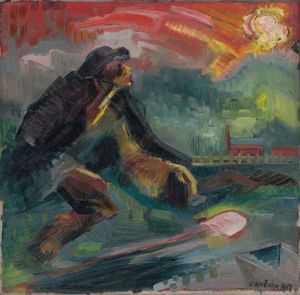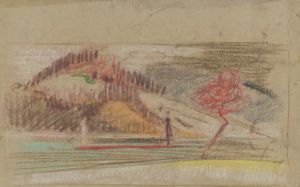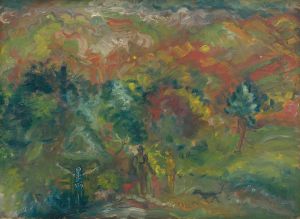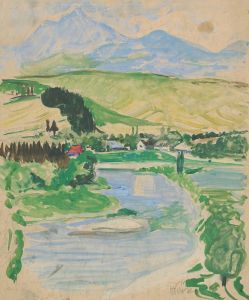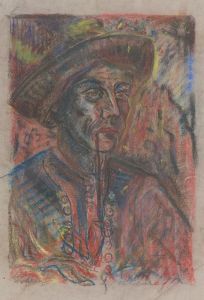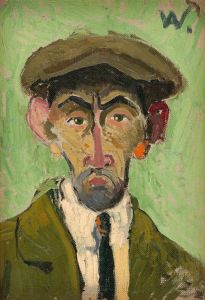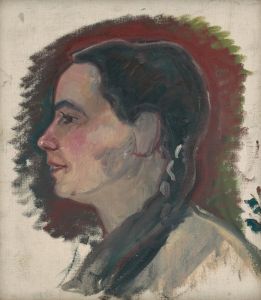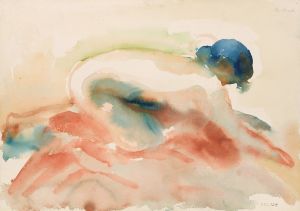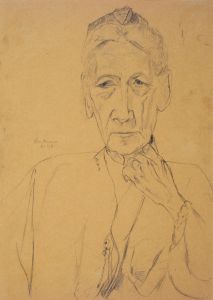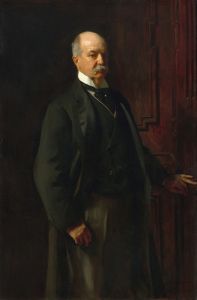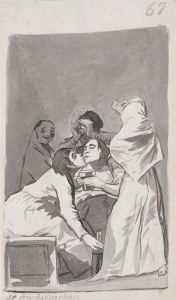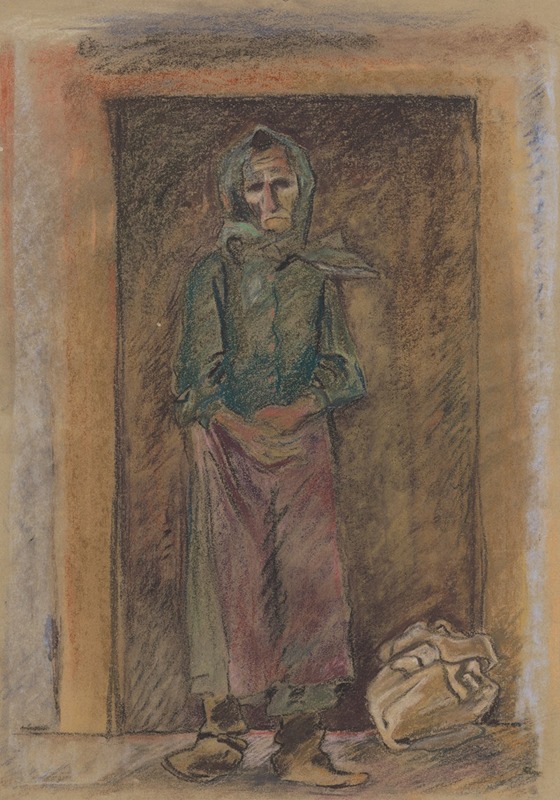
Old Woman
A hand-painted replica of Arnold Peter Weisz-Kubínčan’s masterpiece Old Woman, meticulously crafted by professional artists to capture the true essence of the original. Each piece is created with museum-quality canvas and rare mineral pigments, carefully painted by experienced artists with delicate brushstrokes and rich, layered colors to perfectly recreate the texture of the original artwork. Unlike machine-printed reproductions, this hand-painted version brings the painting to life, infused with the artist’s emotions and skill in every stroke. Whether for personal collection or home decoration, it instantly elevates the artistic atmosphere of any space.
Arnold Peter Weisz-Kubínčan was a Slovak painter of Jewish descent, born on May 3, 1898, in Dolný Kubín, Slovakia. He is known for his contributions to modern art in Slovakia during the early 20th century. One of his notable works is the painting titled "Old Woman."
"Old Woman" is a poignant and expressive piece that reflects Weisz-Kubínčan's unique style, which often combined elements of expressionism and modernism. The painting captures the essence of an elderly woman, rendered with a deep sense of empathy and realism. The subject's face is marked by the passage of time, with wrinkles and a somber expression that convey a lifetime of experiences and emotions.
Weisz-Kubínčan's use of color and brushwork in "Old Woman" is particularly noteworthy. The palette is subdued, dominated by earthy tones that enhance the melancholic mood of the piece. The brushstrokes are deliberate and textured, adding a sense of depth and dimension to the woman's visage. This technique not only highlights the physical characteristics of the subject but also evokes a deeper emotional response from the viewer.
The context in which Weisz-Kubínčan created "Old Woman" is significant. The early 20th century was a tumultuous period in Europe, marked by political upheaval and social change. As a Jewish artist in Slovakia, Weisz-Kubínčan faced numerous challenges, including the rise of anti-Semitism and the impact of World War II. Despite these adversities, he continued to produce art that captured the human condition with sensitivity and insight.
Weisz-Kubínčan's work, including "Old Woman," was largely influenced by his personal experiences and the broader socio-political environment of his time. His art often reflected themes of suffering, resilience, and the passage of time, which are evident in the somber yet dignified portrayal of the elderly woman in this painting.
Unfortunately, Weisz-Kubínčan's career was cut short by the tragic events of World War II. He was deported to a concentration camp during the Holocaust and perished in 1944. Despite his untimely death, his legacy endures through his contributions to Slovak modern art and the poignant works he left behind.
"Old Woman" remains a testament to Weisz-Kubínčan's artistic vision and his ability to convey profound human emotions through his art. The painting is a significant piece within his oeuvre, exemplifying his skill in capturing the essence of his subjects and the emotional depth of his work. Today, Weisz-Kubínčan is remembered as a talented and empathetic artist whose work continues to resonate with audiences and art enthusiasts around the world.





